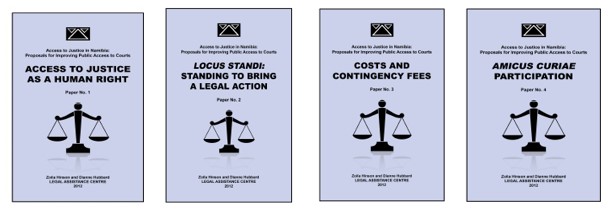Access to justice is both an independent human right and a crucial means to enforce other substantive rights. Namibia has a progressive, modern constitution, guaranteeing an impressive set of rights for the individual. Yet without a realistic means to enforce those rights, substantive guarantees can far too easily become merely a set of empty promises. The Constitution of Namibia guarantees access to justice. But some legal procedures limit the ability of individuals, particularly marginalised populations, to access the courts.
In this series of papers, we propose reforms to improve access to justice in Namibia in respect of four different topics:
(1) access to justice as a human right;
(2) standing to bring a legal action in the Namibian courts;
(3) costs and contingency fees;
(4) the right of non-parties with relevant expertise to participate in court cases as “friends of the court” (amicus curiae).

These papers will be of primary interest to lawyers. For an explanation of the concept of standing aimed at the layperson, read BroBono 21
Since the papers were published in 2012, one of the proposals in the paper on costs resulted in a new provision in the Rules of the High Court on orders for protective costs, whereby a litigant who brings a claim of public importance and fails may be relieved of the normal obligation to pay the costs of the winning party – with this agreed in advance so that the party may proceed with fear of the financial consequences of bringing a case of public interest.


